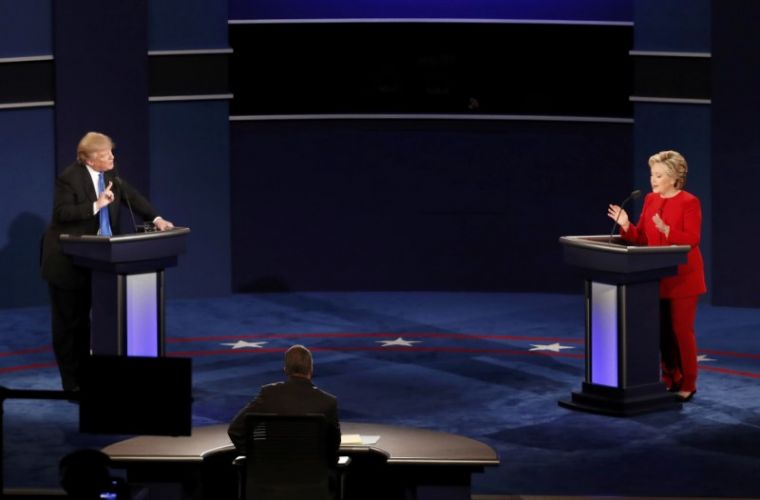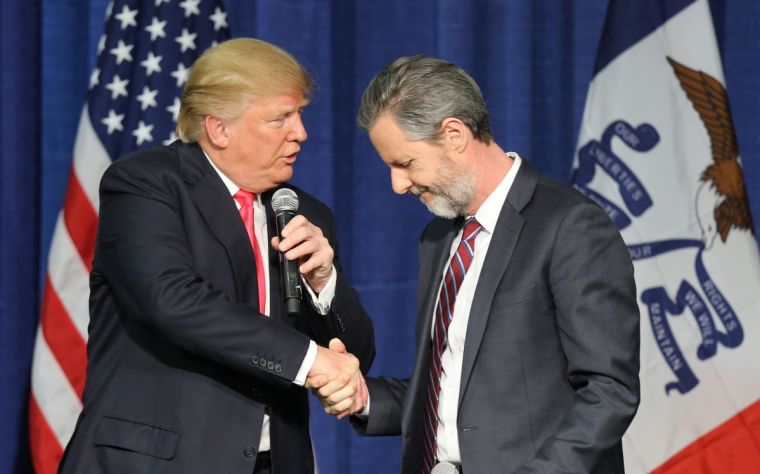Donald Trump did not want to be president: Why many evangelicals will like that
Donald Trump did not want to be President.
That is one of a number of dramatic claims made in Michael Wolff's book and dominating political headlines both in the US and the UK. Alongside the suggestion former British Prime Minister Tony Blair told Trump the British government was spying on him during the campaign and that media mogul Rupert Murdoch branded Trump 'a f***ing idiot' after a phone call, the portrayal of Trump as never wanting to win the campaign is one of the most shocking allegations to emerge so far.

'As the campaign came to an end, Trump himself was sanguine,' the book reads according to an extract in the New Yorker magazine. 'His ultimate goal, after all, had never been to win. "I can be the most famous man in the world," he had told his aide Sam Nunberg at the outset of the race. His longtime friend Roger Ailes, the former head of Fox News, liked to say that if you want a career in television, first run for president. Now Trump, encouraged by Ailes, was floating rumors about a Trump network. It was a great future. He would come out of this campaign, Trump assured Ailes, with a far more powerful brand and untold opportunities.'
But win he did on the coat tails of some of the most powerful evangelical leaders in the US: Jerry Falwell Jnr, Franklin Graham, Robert Jeffress and dozens more who said 'God showed up' in the 2016 presidential election.
'Political pundits are stunned. Many thought the Trump/Pence ticket didn't have a chance. None of them understand the God-factor,' Franklin Graham wrote on Facebook after the election in November.
The utter chaos of Trump's early administration portrayed in Wolff's book is unlikely to dampen their enthusiasm for a President they see as raised up by God 'for such a time as this'.
The motif of a reluctant leader, who does not want power but is individually chosen by God for a specific role, is one familiar to evangelicals.
'Who am I,' asked the Old Testament hero Moses (Exodus 3:1), 'that I should go to Pharaoh and bring the children of Israel out of Egypt?'
'How can I save Israel?,' cried Gideon in the Bible's account (Judges 6:15) of the would-be warrior meeting God' angel. 'My clan is the weakest in Manasseh, and I am the least in my father's house.'
'Lord God!,' protested the Jewish prophet Jeremiah (Jeremiah 1:6). 'I do not know how to speak, for I am only a youth.'
For evangelicals such as Falwell, Graham and Jeffress, the idea that their hero Trump never wanted to win the presidency will not dampen their excitement for him as a man sent from God. If anything it will fan the flames of their enthusiasm – it was not Trump's plan but God's plan, they may think.

But while Trump's backers may cite the examples of Moses, Gideon and Jeremiah and shining examples of leaders who did not want power but had it thrust upon them, there are other less flattering examples.
Jephthah, for example, was equally reluctant when chosen. 'Why have you come to me now when you are in distress?,' he says according to Judges 11:7.
Jephthah went on to burn his own daughter in a sacrifice after a reckless vow.
And ultimately King Saul, who hid among baggage when the Israelites tried to crown him (1 Samuel 10.22), ends up going mad according to the Bible's account and is possessed with an evil spirit that drives him to try repeatedly to murder his successor.
So reluctance for power is not, in the Bible's telling, an automatic sign that everything will work out well in the end.











